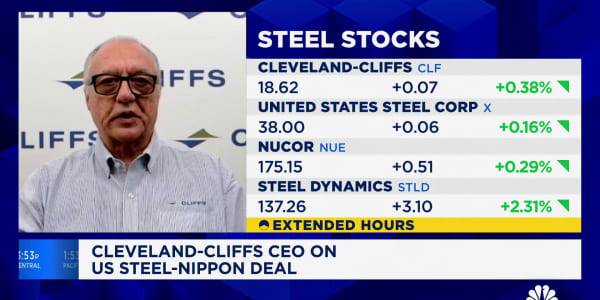What if some of the biggest names in economics and econ-blogging got into a fight about Christmas? It might go a little something like this.
The Christmas equivalence theorem
By Robert Barro, Wall Street Journal
While it's understandable that young people across America hope that their lives will be enriched by a sudden influx of toys and sugarplums on December 25, it is incumbent on grown-ups to realize the truth about this Keynesian scheme.
It has been demonstrated time and again that Christmas cannot add to the store of toys of the nation or even a single household.Households experiencing a surge in gifts on Christmas day compensate by withholding gifts in the future. That is, gifts that are "spent" on Christmas are saved during the remainder of the year. So each Christmas gift isn't really so much given as borrowed from the future.
Sorry kids, Santa isn't so much bringing you presents as stealing presents you would have received in the future.
Rudolph's Ruddy Nose (Wonkish)
By Paul Krugman, New York Times
Joe Weisenthal has a terrific take on the growth of unemployment in the North Pole. As is well known, reindeer unemployment has surged. Yet the Very Serious Elves who promised that sleigh austerity would rapidly bring growth back to the Pole have learned nothing.
But it's not just the elves. Even economists, who should know better, go on insisting that we need to shrink Santa's route now despite high reindeer unemployment. Some continue to insist that there just is a skill mismatch in the Pole economy, so that we have no choice but to allow the diminutive Rudolph resources go unemployed. This truly is the dark age of North Pole economics.
Imagine for a moment that the pole suffered from an immense foggy night. Everyone would agree in that case that we could put Rudolph's red nose to good use. I know it drives people crazy when I mention that a crisis can be good for aggregate demand—but everyone who disagrees with me is already crazy, so who cares?
Santa Claus is inflating away the future of Christmas
By Niall Ferguson, Financial Times
In the course of history there have always been those who believed that we could celebrate Christmas in perpetuity. And every time, without fail, the Christmas program has run up against the hard reality of inflation. You just cannot expect that producing all those gifts out of the ether will not diminish the value of all the gifts that have come before and all those that shall come after.
The truth about Christmas and Inflation
By Josh Barro, Business Insider
Niall Ferguson writes: "You just cannot expect that producing all those gifts out of the ether will not diminish the value of all the gifts that have come before and all those that shall come after.
Derp.
Niall Ferguson is a jerk.
The dirty secret of North Pole's success
By Steve Sailer, isteve.blogspot.com
There appears to be a silent rule among pundits—all of whom secretly read me—that we not mention immigration and the North Pole in the same sentence. The truth is that the success of Santa's operation up there demonstrates that the accepted orthodoxy on immigration is 100 percent wrong. For as long as anyone can remember, there's been zero immigration to the North Pole—yet the economy thrives, the elves have a thriving culture and there is very little social strife. All that is supposed to be impossible in a monoculture.
But, of course, you're not supposed to notice these hate-facts.
Open Borders: Why should they stop at Christmas?
By Tyler Cowen, Marginal Revolution
Every year the American government briefly relaxes its stranglehold on our borders to permit the entrance of Santa Claus and his team of reindeer. If this is a good thing on Christmas, imagine how much better it would be if we made this our year round policy? Have you ever eaten in an Elven restaurant? The candy canes are sublime.
While there are some who think that competition with elf workers would impoverish American workers, there is not a lot of evidence to support this. In fact, the toy making of the elves would likely be complimentary to native production. What's more, the wealth generated by elven labor would add to economic growth.
Nominal Christmas Present Targeting
By Scott Sumner, TheMoneyIllusion.com
If the Fed would simply announce a nominal target for presents, we'd all receive more presents on Christmas day. There are many ways to do NCPT but I prefer that the Fed create a presents futures market.
A lot of people look at the amount of presents under the tree and attempt to derive the stance of Santa. But this is wrong. You need to examine the demand for presents as well as the supply. In general, a large pile of presents is a sign that Christmas policy has been too tight, while coal in the stocking is a sign that it has been too loose.
P.S. As Mark Sadowksi points out in comments, naughty boys and girls would get hot potatoes rather than coal.
P.P.S Nick Rowe responds. Obviously I agree but I want to make something clear...
The Candy Cane Racket
By Tim Carney, Washington Examiner
When you wake up on Christmas morning, you may notice that your stockings have been stuffed with candy canes, among other things. Why don't we have candy canes all year round? The answer is that candy canes are very expensive to manufacture thanks to the taxes placed on striped candies.
Of course, candy canes imported from just one area are exempt from the tax. Yep. You guessed it: the North Pole. As it turns out, Santa's little lobbyists had a hand in writing the Domestic Candy Protection Act of 2010. And the former chief staffer for the Senate Subcommittee on Curved Candy now works for the lobbying firm employed by Santa.
There is no long term Christmas problem
By Stephanie Kelton and Warren Mosler, New Economics Perspectives
Each year Santa runs an enormous Christmas present deficit, prompting worries that Santa is bankrupting the North Pole. This is exactly backward. Santa must run a deficit if the rest of the world is going to run a present surplus. If not for Santa's deficit, household net present assets would have to fall. Every person's gift is another person's spending.
As a sovereign issuer of presents, Santa Claus faces no short or long term constraint on his ability to give gifts. There are children and grandchildren, involved, of course.
Is Christmas Deflationary or not?
By Izabella Kaminska, FT Alphaville
As we pointed out quite some time ago, there are serious questions to be raised about the deflationary possibilities of Christmas.
[The rest of this article is free but you must register with the Financial Times. And later, if you want to read this again, you will have to register again. And again.]
By Robert Murphy, The Ludwig Von Mises Institute
You have to read the latest article by Paul Krugman to believe it. He writes that a foggy night could prompt Santa to utilize the red nose of Rudolph—as if this would have no effect on the overall Rudolph savings of the North Pole's economy.
The fog might induce Santa to use Rudolph now but eventually this would prove to be an unsustainable investment in a roundabout process. A part of the reindeer team would have to be liquidated to restore equilibrium.
I rode on Santa's sleigh and it was surprisingly comfortable
By Henry Blodget, Business Insider
I have very long legs. The seats are made for jolly old elves. Take a look at all these pictures I took.
Here's what you need to know about this year's big Christmas econ-war
By Joe Weisenthal, Business Insider
[Click to view this 28 page slide show on one page]






